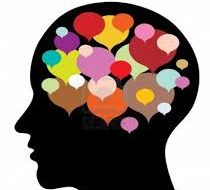
Your Thoughts, Part III – Cognitive Distortions
I believe one of the most important resilience skills is an awareness of our thoughts. Remember, in order to function in this world we need to make sense of it (and right now that’s no easy task). We make sense of it by explaining to ourselves why things happen. The more mentally flexible we are, the more accurate we can be in our explanations as to why a given situation took place. The more accurate we are in our explanations the more resilient we will be. Most of us have consistent ways of explaining why something happened, we have patterns of explanations. Within those patterns of explanations we all use what we call Cognitive Distortions or Irrational Beliefs.
Cognitive distortions are thoughts that cause people to see reality inaccurately. They are beliefs that are irrational and inaccurate and are usually associated with negative feelings. We all have cognitive distortions and we tend to use the same distortions repeatedly. The thing about these errors in thinking is they happen automatically, we don’t intentionally think inaccurately, but we do. And the thing about cognitive distortions is that we feel bad when we think distortedly. When we perceive an event distortedly or irrationally we are negatively impacting our well-being. Remember our thoughts drive our feelings and behavior. By thinking distortedly we are making ourselves feel worse than need be.
So for example, in the face of an upset, I can say to myself “Why am I always (over generalization) reacting this way?! I shouldn’t (should statements) feel this way, this is just terrible (catastrophizing.)” or I can say to myself, “Why am I reacting this way! I really wish I didn’t feel this way, but I do. I know it will pass soon.” The content of what I am saying to myself is very different in each case and will have a different effect on my subsequent feelings and behavior. Always, shouldn’t and terrible are cognitive distortions. If we can hear what we say to ourselves in our efforts to make sense of the world, especially the cognitive distortions we use, we can harness that ability in order to be more accurate and flexible in service of reframing our thoughts or challenging our beliefs

 Classes For Schools
Classes For Schools Classes For Companies
Classes For Companies